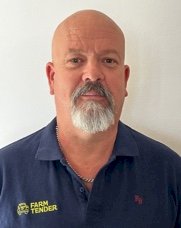Trust: easy to lose, hard to get back
- By: "Farm Tender" News
- Hay & Fodder News
- Jul 31, 2020
- 477 views
- Share

By Robbie Sefton - Managing Director, Seftons, Advocate for rural, regional and remote Australia, Strategic Advisor, Commentator, Board Member
We've heard a lot about rural industries’ "social licence" over the past few years. What is it, actually?
In a word, it is trust. It is the community trusting that farmers, fishers and foresters share broader social values on matters like environmental stewardship, animal welfare and water resources.
When trusted, primary producers and their supply chains are largely left alone to pursue their business. If a sector is felt to be violating some aspect of society's expectations, things suddenly get more complicated. Investors are scared off, and regulators and retailers are called on to bring the sector into line. Whether it happens fast or slow, voluntarily or under force, a realignment toward community expectations eventually takes place.
There can be large gaps in understanding between someone who has only interacted with the land or sea via a supermarket, versus a person who is daily engaged in fishing, farming or forestry. But on the whole, society is not unrealistic in its demands. Animals should not needlessly suffer, environments not permanently despoiled, precious water not siphoned off to benefit a few.
Occasionally a particularly boofheaded action by a producer or producers will draw widespread condemnation and an entire industry will have its social licence questioned because of the actions of a few.
More often, though, a sector will pursue what seems like a good idea, adopt it widely, and then suddenly find that a vocal segment of the community doesn't like its idea at all.
In today's shouty post-truth environment, it has become vastly more complicated to speak to the community in ways that restore trust - partly because communities are no longer what they were.
As people become more distrustful of the information they receive, they are less inclined to accept what they see in the mainstream media, and adopt the outlook of their chosen tribe - whether it is formed by peers, or around an online group that appears to have shared values.
The key to community trust is first understanding the community’s concerns and issues, and then acting on these concerns – not just talking about how great the industry or sector is in the hope of deflecting the argument.
It is becoming less viable for one sector to deal with this environment alone. The actions of one industry undoubtedly affect the rest because the community sees particularly environmental responsibility as something that is very much shared across the sector.
Rural industries need better intelligence about community expectations, and more sophisticated approaches to deal with breaches of those expectations.
Significant initiatives are underway to build cross-sector collaboration on these matters.
Fishers, farmers and foresters are generally still trusted and respected by consumers, but we can expect the sustaining of "social licence" to become harder in a distrustful world.
If there is a winning strategy for social licence, it would be "keep at it". Find out what drives trust in your industry by asking the community; be prepared to be transparent and vulnerable; use the insights you gain to focus on the community’s priorities and drive industry action that is responsive, and demonstrate this action – then back to the beginning. It’s an ongoing cycle of engaging, aligning and working on those key areas.
Robbie Sefton has a dual investment in rural Australia as a farmer, producing wool, meat and grains, and as managing director of national marketing communications company Seftons.












Share Ag News Via